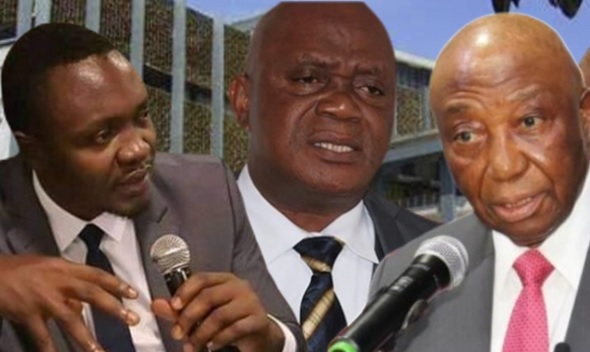MONROVIA – Martin Kollie, a prominent advocate within Liberia’s civil society, has announced his resignation from all activities associated with the ruling Unity Party (UP) government under President Joseph Nyuma Boakai. Kollie made the announcement today, Saturday, 15 June 2024, on his official Facebook page, stating, “I have officially tendered in my resignation to President Boakai as a member of the Asset Recovery and Property Retrieval Taskforce (AREPT). I thank the president for everything and wish him well as he leads our country. I have no regrets for supporting him. I will now return to where I was (civil society).”
Kollie, a former member of the 15-member AREPT, recently expressed his concerns about the taskforce’s leadership and operational methods in a letter to Chairman Cllr. Edwin Kla Martin. Dated May 5, 2024, the letter highlights Kollie’s dissatisfaction with what he describes as an “amateur and unsystematic model” of leadership within AREPT, which has been in place since its establishment by Executive Order No. 126 on March 7, 2024.
President Boakai had appointed Cllr. Martin, a Counselor-At-Law and former Chairperson of the Liberia Anti-Corruption Commission (LACC), as the chair of AREPT. Despite his initial support, Kollie’s letter reveals growing frustration with Cllr. Martin’s approach, citing a lack of adherence to ethical, procedural, legal, and professional standards. Kollie emphasized the need for consensus within AREPT, criticizing the emergence of an “authoritative clique” that excludes dissenting voices and valuable contributions.
Kollie also pointed out that his collaborative efforts with AREPT’s Special Advisor, Mr. Alex Cuffy, to develop technical policy documents were disregarded by Cllr. Martin’s leadership. This disregard for inclusive decision-making and adherence to standards has prompted Kollie to step down from his role.
The resignation letter underscores the internal discontent within AREPT and calls for reforms to ensure transparency, accountability, and inclusivity within the taskforce. Kollie’s departure from the taskforce and his subsequent return to civil society advocacy have raised questions about the leadership of President Boakai’s six-month-old administration.
Kollie’s recent social media posts have been critical of President Boakai, reflecting his disillusionment. “I am shedding tears. I went to the extreme for this man and damaged so many relationships just to ensure that our PEOPLE have a NEW DAY and a NEW DAWN; for them to break away from poverty after 177 years of misery,” Kollie posted, indicating his deep disappointment.
Kollie’s discontent with President Boakai, whom he once supported as the Chairman Emeritus of Research and Policy Response for the 2023 campaign, signals a significant shift in his stance. Now living in exile due to threats against his life under the previous Coalition for Democratic Change government led by former President George Weah, Kollie has returned to his roots in civil society advocacy, where he initially rose to prominence as a vocal critic of corruption and poor governance.
However, Kollie’s resignation and public discontent highlight deeper systemic issues within the Boakai administration. His criticisms of AREPT’s leadership point to broader concerns about governance and accountability that seem to be plaguing the Unity Party. The exclusion of dissenting voices and failure to adhere to professional standards not only undermine the effectiveness of AREPT but also erode public trust in the government’s commitment to transparency and justice.
Critics argue that President Boakai’s administration appears to be continuing the same patterns of governance that have plagued Liberia for years. The rise of an “authoritative clique” within AREPT, as Kollie described, is reminiscent of past administrations where power was concentrated in the hands of a few, sidelining genuine efforts for reform and inclusivity. This situation is particularly disheartening given the high hopes many Liberians had for a new dawn under Boakai’s leadership.
As Kollie re-enters the civil society arena, political commentators and ordinary citizens alike are left wondering about the future of the Unity Party government and President Boakai’s leadership. The departure of a key advocate like Kollie suggests potential unrest and the need for serious introspection within the ruling party. If the Boakai administration does not address these criticisms and implement necessary reforms, it risks losing the support of its most ardent advocates and, ultimately, the trust of the Liberian people.







